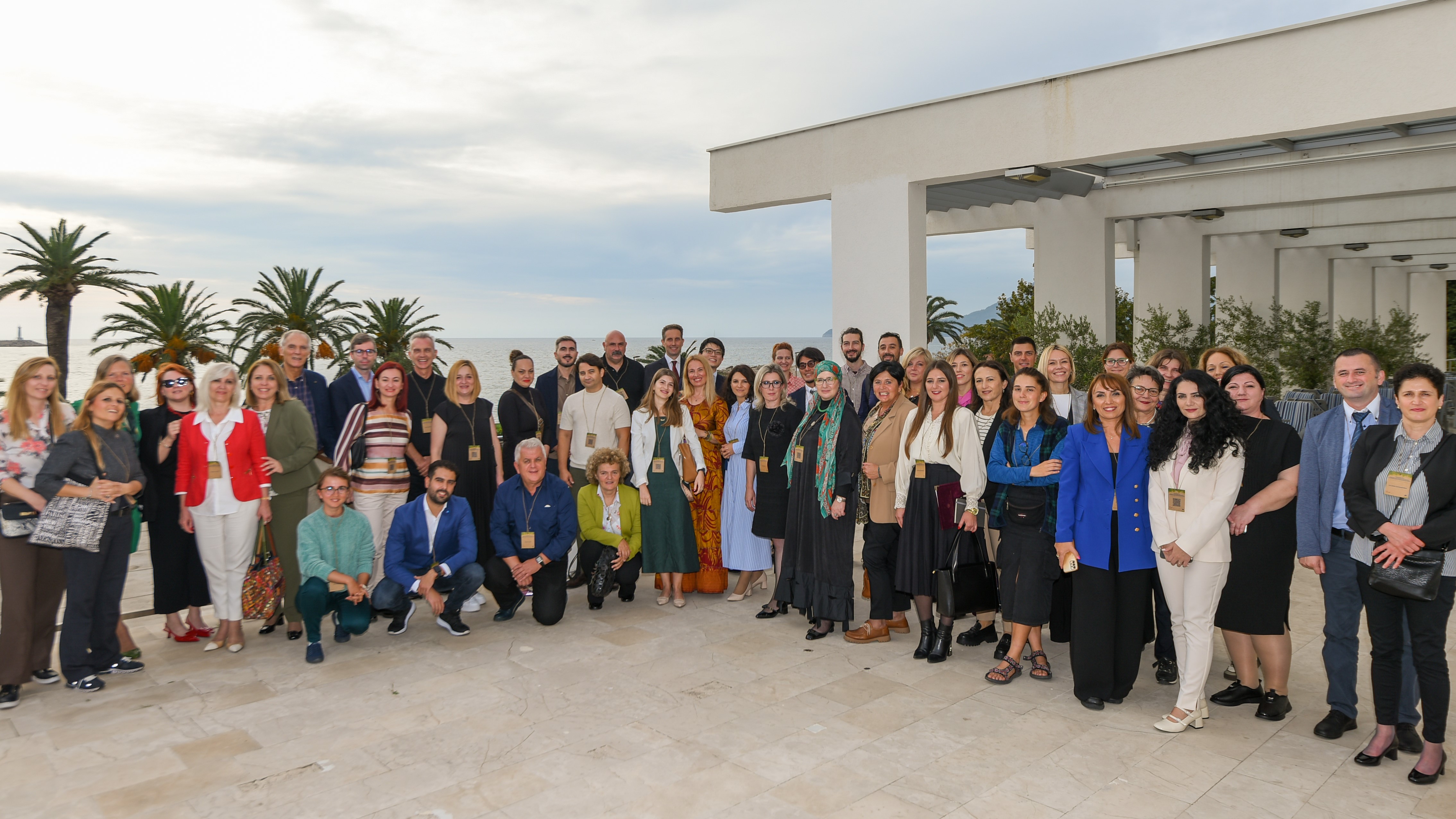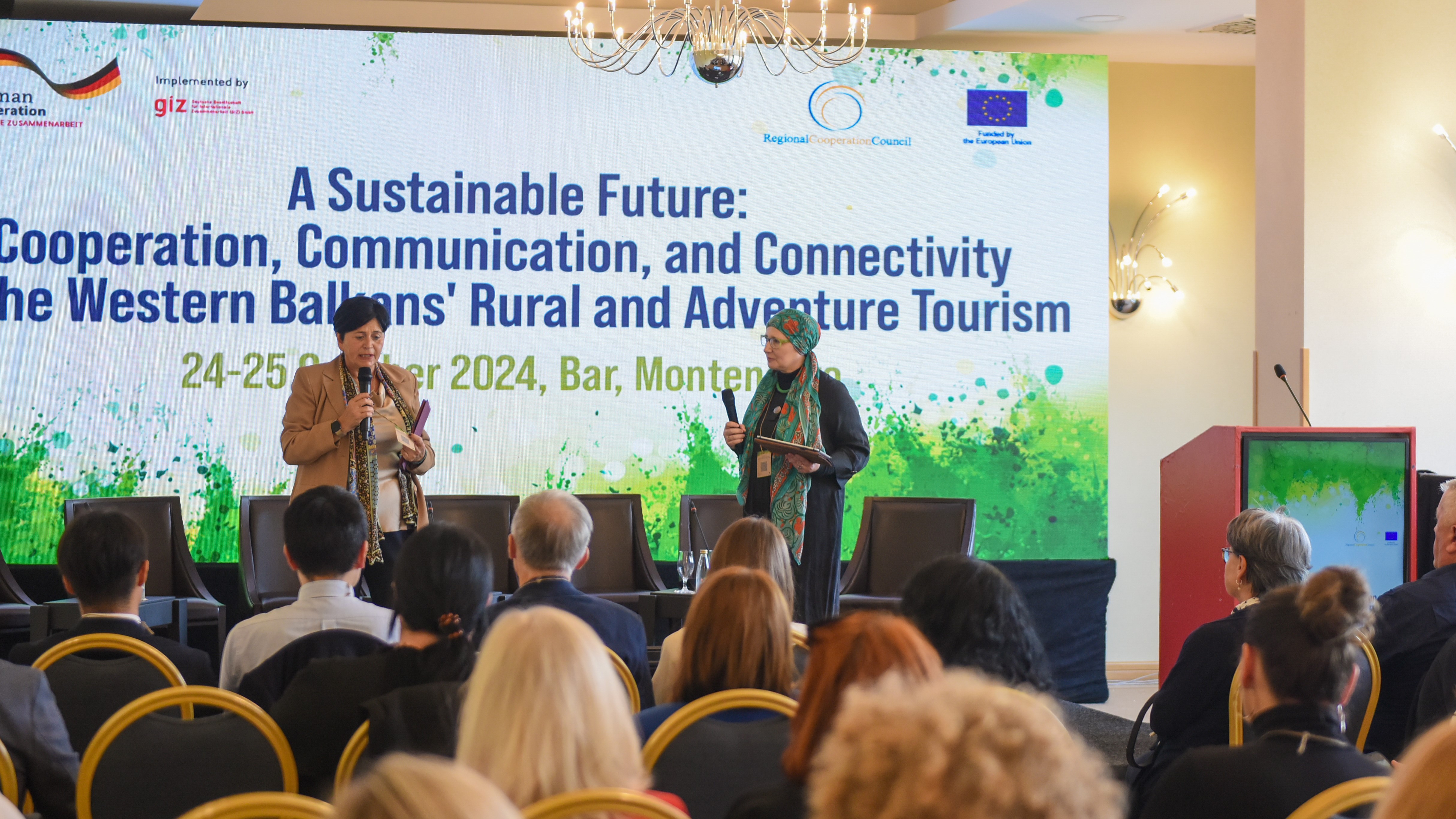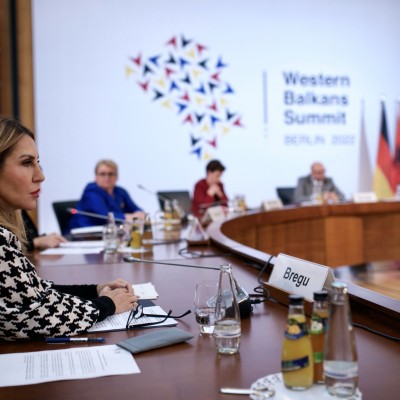Western Balkans records 23% rise in tourist arrivals last year
28 October 2024

Regional Cooperation Council (RCC) and German Corporation for International Cooperation (GIZ) organised and co-hosted the conference dubbed A Sustainable Future: Cooperation, Communication, and Connectivity in the Western Balkans' Rural and Adventure Tourism on 24-25 October in Bar

A Sustainable Future: Cooperation, Communication, and Connectivity in the Western Balkans' Rural and Adventure Tourism conference took place on 24-25 October 2024 in Bar, Montenegro (Photo: RCC)
RCC, GIZ co-organise a conference on sustainable tourism in the Western Balkans
Bar/Sarajevo – With an aim to shape a sustainable future for Western Balkans (WB) tourism, the Regional Cooperation Council (RCC) and German Corporation for International Cooperation (GIZ) organised and co-hosted the conference dubbed A Sustainable Future: Cooperation, Communication, and Connectivity in the Western Balkans' Rural and Adventure Tourism on 24-25 October in Bar. The conference gathered representatives of WB tourism ministries, EU representatives, regional development bodies, the private sector, and international organisations, all committed to harnessing the region’s tourism momentum through unified strategies and collaborative action.
“With the tourism sector showing an impressive increase of 23% in tourist arrivals and a 27.5% rise in overnight stays across the region last year, the potential is clear. However, the central question posed remains: Is this momentum sustainable, and are the region’s tourism assets being used to their full potential?” said Pranvera Kastrati, Head of RCC’s Programme Department, in her opening remarks. “Sustainable growth requires coordinated actions across various sectors and a commitment to green and digital transitions to ensure lasting resilience. Tourism must not be seen as an isolated industry; it is a sector that thrives on synergies with environmental, digital, and economic policies to bring about real, long-term impact in the Western Balkans,” added Kastrati.
David Hudson, Senior Expert at European Commission’s DG NEAR, reiterated the importance of regional collaboration. He emphasized that the EU has recognised tourism as a catalyst for economic growth in the Western Balkans, including it in the EU Growth Plan for the region to foster economic convergence with the EU single market. Hudson noted that tourism creates extensive linkages across other sectors—such as services and goods—boosting local economies through substantial multiplier effects. According to him, rural and adventure tourism, in particular, retain much of their economic impact locally, making them ideal for sustainable growth. Hudson said that a strong regional tourism sector exponentially enhances what the Western Balkans can offer, pointing to the variety of experiences that collectively make the region more competitive in European but also world markets.
Karin Rau, Project Manager at GIZ’s SEDRA, emphasized the role of tourism in fostering cross-border cooperation and peacebuilding. Rau added that by focusing on sustainable tourism and biodiversity conservation, the Western Balkans can build a tourism model that respects natural resources while creating meaningful, long-term opportunities for communities across borders.
The participants of the conference reaffirmed the need for communication, cooperation, and connectivity to position the Western Balkans as a resilient and innovative tourism destination. They agreed that by working together, the Western Balkans can grow into a unified, internationally competitive tourism hub, offering unique experiences that extend from the coasts to the mountains and lakes, with a rich array of cultural, leisure, and adventure activities.



